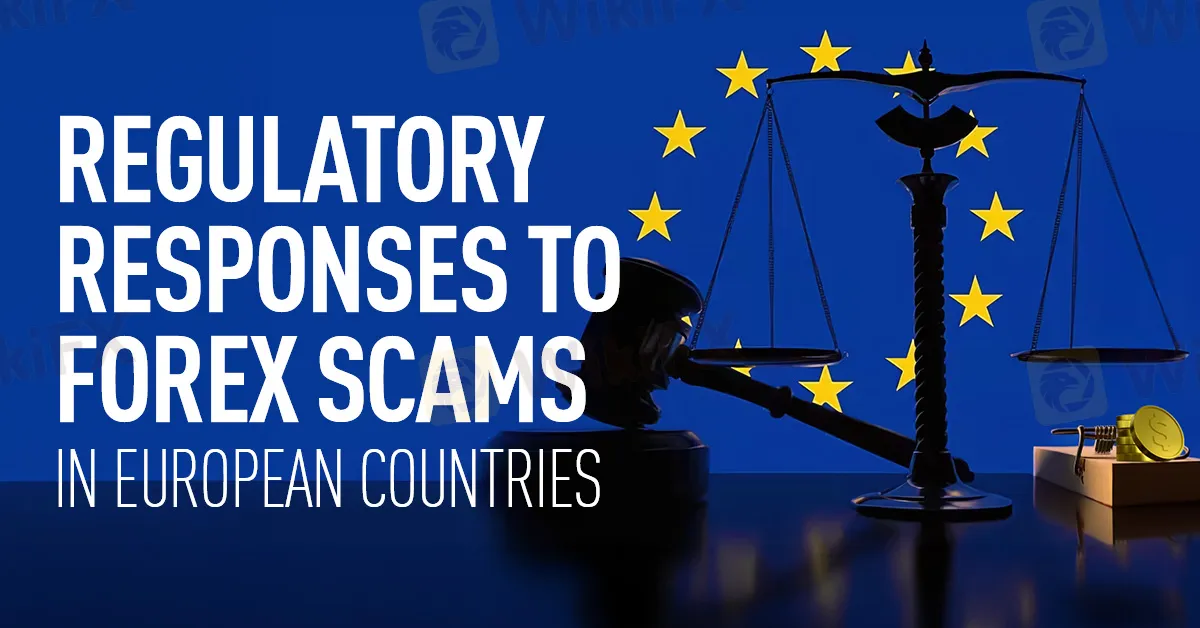简体中文
繁體中文
English
Pусский
日本語
ภาษาไทย
Tiếng Việt
Bahasa Indonesia
Español
हिन्दी
Filippiiniläinen
Français
Deutsch
Português
Türkçe
한국어
العربية
Regulatory Responses to Forex Scams in European Countries
Abstract:As forex investment scams continue to plague Europe, regulatory bodies in various countries are working tirelessly to devise and implement strategies aimed at safeguarding investors. In this article, we explore the diverse regulatory responses to forex scams in European countries, examining the effectiveness of these measures and the challenges faced by regulatory authorities in curbing fraudulent activities.

As forex investment scams continue to plague Europe, regulatory bodies in various countries are working tirelessly to devise and implement strategies aimed at safeguarding investors. In this article, we explore the diverse regulatory responses to forex scams in European countries, examining the effectiveness of these measures and the challenges faced by regulatory authorities in curbing fraudulent activities.
The forex market, by its very nature, operates globally, presenting a unique set of challenges for regulatory bodies. European countries have recognized the need for a coordinated effort to combat cross-border scams, leading to the establishment of regulatory frameworks that aim to protect investors from unscrupulous practices.
One common response among European countries has been the imposition of stringent regulations on forex brokers. Regulatory bodies are tightening their grip on licensing requirements, capital adequacy standards, and conduct regulations for brokers operating within their jurisdictions. By setting higher standards, authorities seek to ensure that only reputable and financially stable brokers can operate, minimizing the risk of fraud.
Collaboration between European countries has become increasingly crucial in the fight against cross-border scams. Authorities are actively sharing information and coordinating efforts to track down and prosecute individuals or entities that engage in fraudulent activities across multiple jurisdictions. This collaborative approach enhances the effectiveness of regulatory actions and serves as a deterrent to potential scammers.
However, challenges persist. The borderless nature of the internet allows scammers to easily sidestep regulatory measures, making it challenging for authorities to enforce regulations consistently. The speed at which fraudulent entities can adapt to changes in regulations also poses a constant threat, requiring regulatory bodies to remain agile in their responses.
One beacon of support for investors navigating the regulatory landscape is WikiFX, a platform dedicated to providing comprehensive information about forex brokers and their regulatory status. By offering a centralized database of broker profiles, WikiFX empowers investors to make informed decisions about the legitimacy and reliability of brokers. Users can access real-time updates on regulatory changes and stay abreast of developments that may impact their investments.
WikiFX serves as a valuable resource for investors seeking clarity on the regulatory environment in European countries and beyond. The platform's commitment to transparency aligns with the objectives of regulatory bodies, providing an additional layer of protection for investors against fraudulent activities.
For investors navigating the regulatory landscape, staying informed is crucial. WikiFX not only provides a wealth of information about brokers but also offers educational resources to enhance users' understanding of regulatory frameworks and how they can contribute to a safer trading environment.
In conclusion, the regulatory responses to forex scams in European countries reflect a concerted effort to protect investors and maintain the integrity of the forex market. While challenges persist, collaborative initiatives and technological tools, such as those offered by WikiFX, are instrumental in empowering investors and bolstering regulatory efforts. As the battle against forex scams continues, a combination of vigilance, education, and effective regulatory measures is key to ensuring a safer trading environment for all.

Disclaimer:
The views in this article only represent the author's personal views, and do not constitute investment advice on this platform. This platform does not guarantee the accuracy, completeness and timeliness of the information in the article, and will not be liable for any loss caused by the use of or reliance on the information in the article.
Read more

Alleged Concerns with TradeEU.global's Trading Practices
An individual trader has come forward with allegations of an unfavourable experience while using the services of the broker TradeEU.global.

Lured by False Promises: Malaysian Driver Lost RM218K to an Investment Scam
A 49-year-old e-hailing driver in Malaysia fell victim to a fraudulent investment scheme, losing RM218,000 in a matter of weeks. The scheme, which falsely promised returns of 3 to 5 per cent within just three days, left the individual financially devastated.

SFC Freezes $91M in Client Accounts Amid Fraud Probe
SFC freezes $91M in client accounts at IBHK, SBI, Monmonkey, and Soochow over suspected hacking and market manipulation during unauthorized online trades.

Malaysian Man Loses RM113,000 in Foreign Currency Investment Scam
A 57-year-old Malaysian man recently fell victim to a fraudulent foreign currency investment scheme, losing RM113,000 in the process. The case was reported to the Commercial Crime Investigation Division in Batu Pahat, which is now investigating the incident.
WikiFX Broker
Latest News
What Makes Cross-Border Payments Easier Than Ever?
Trader Exposes Unethical Practices by STP Trading
Saxo & Portuguese Bank Partnership
SEC Fines Broker-Dealers $275K for Incomplete SAR Filings
Lured by False Promises: Malaysian Driver Lost RM218K to an Investment Scam
FTX Sets March 2025 Timeline for Creditor Payouts: What It Means for Investors
Italian Regulator Warns Against 5 Websites
Mastercard's 2030 Vision: Biometric-Driven, Tokenized Payments
SFC Freezes $91M in Client Accounts Amid Fraud Probe
Bybit Launches Gold & FX Treasure Hunt with Real Gold Rewards
Currency Calculator


